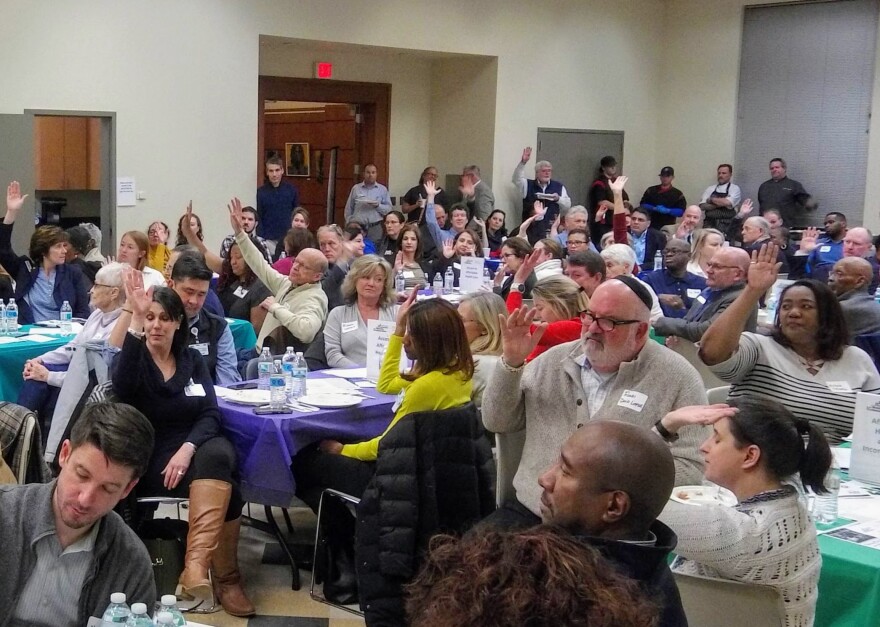An organization formed last year to promote regional cooperation on economic mobility in northern Mecklenburg County is rebuilding after the pandemic slowed its work.
Like so many other things during the pandemic, the North Mecklenburg Economic Mobility Collaborative got stopped in its tracks a year ago. More than 200 community leaders and residents had gathered at Cornelius Town Hall in January 2020 to form the group.
But COVID-19 made face-to-face meetings impossible and forced many members to focus on immediate needs. A small steering committee has been working quietly behind the scenes to keep the effort moving.
"We decided as a steering committee to focus on attainable housing, child care and health care and to try to get our focus back on what are the issues and the contributing factors toward the lack of economic mobility in the community," said steering committee member Diane Means.
Means also oversees community engagement at the Ada Jenkins Center, a social-service center in Davidson. She said the idea is to bring local governments, organizations and residents together to solve problems affecting people with low incomes, including people in those neighborhoods.
"We're always wanting to focus and center the voice of those people who really experience these issues on a daily basis so that their voice is at the table to help us pick out what the real nuggets of the problem are," Means said. "(They) help us frame up the problem and then help look for solutions, whether that's collaboration or building on something that's already strong in the community."
Varona Wynn of Huntersville has recently gotten involved with the group. She already helps lead another group called North Mecklenburg Communities United. She thinks the new collaborative is a good idea.
"The more people who address a very, very complicated issue, I feel like more things can get done," Wynn said. "And then more creative things can get done."
During the pandemic, the collaborative has been slow to get committees working on its target issues, as planned. But the group hasn't been quiet. It has continued to build awareness by hosting virtual forums on the issues and by collaborating on research with students from Davidson College's Center for Community Engagement.
Davidson College staff and students helped update a decade-old Community Needs Assessment for the towns of Davidson, Cornelius and Huntersville. Among other things, the new report paints a picture of rising housing prices, a lack of affordable child care and hidden poverty. As the three towns become wealthier overall, 20% of households still make less than $50,000 a year.
Davidson College student interns are also now working on reports that will dig deeper into the issues and offer solutions.
Collaborative members also have worked with other agencies and elected officials to expand emergency food distributions, said steering committee member Ruby Houston of Davidson.
Charlotte-Mecklenburg Schools began offering packaged meals for students who needed them, but there were only two pickup sites — at North Mecklenburg and Hopewell high schools, both in Huntersville. The collaborative helped pull in other organizations, including Caterpillar Ministries of Huntersville, the Ada Jenkins Center and the Community Care Center in the Smithville neighborhood of Cornelius to help. Those groups distributed food in the three towns, and in some cases delivered meals door to door, Houston said.
Many families would not have been able to take advantage of the assistance "had it not been for leaders in the community and agencies that we network with and the collaboration that we have from our monthly meetings," Houston said.
Meanwhile, the collaborative recently worked with local and county officials to organize a COVID-19 vaccination clinic. It's this Wednesday in Huntersville's historically African American Pottstown neighborhood.
The group remains loosely organized, operating with a steering committee in which decisions are made by consensus. But Means said members are discussing how to formalize the organization.
"We're actually meeting soon to start talking about putting more solid plans into place about how we will move from a steering committee to a more structured structure, and what that will look like, and pursuing some nonprofit status," Means said.




